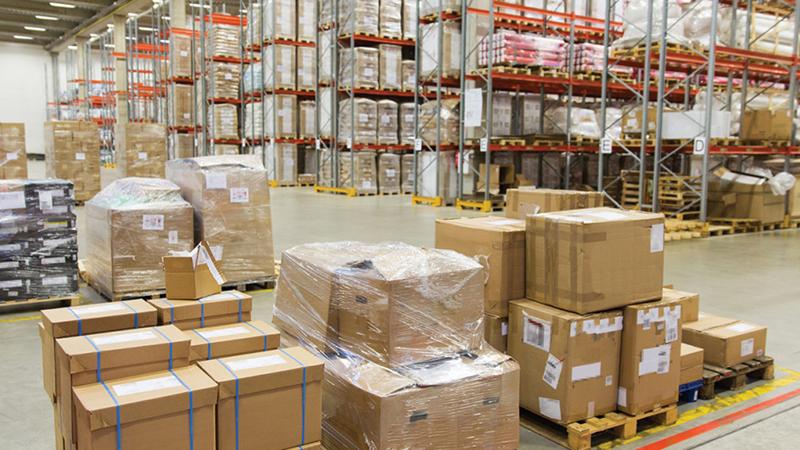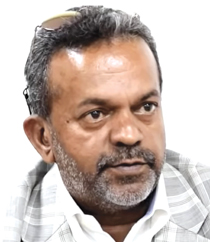
Foreign exchange earnings through foreign employment is currently the largest source for remittances for Sri Lanka, approximately over US$ 7 billion, making an average contribution of 8.8% to the country’s Gross Domestic Product. The Middle Eastern remittance corridor brings in approximately 60% of the total amount.
 Managing Director, Trico Group, Gamini Kannangara |
The Trico Group of Companies, since 1978/79, has provided yeoman service to expat workers, predominantly in countries of the Gulf Cooperation Council (GCC), not only by carrying personal cargo safely but also assisting them in many other personal and delicate matters.
In an interview with Sunday Observer Business, the Managing Director of the establishment, Gamini Kannangara, with over 35 years of hands-on experience in air and sea shipping operations, freight forwarding, warehousing, and land transport, outlines his views on present and future trends of the industry.
Excerpts from the interview:
Q. Can you briefly explain the history of your organisation and the present standing as a Sri Lanka-based international establishment?
A. Trico’s shipping operations were launched humbly in 1978 in the United Kingdom by my brothers, Don Gazara, and the late Chandi Kannangara. At the initial stage in London, the demand for such service was created due to the opening of the Sri Lanka economy by the then J. R. Jayawardene Government in 1977. Cargo was collected and sent to Colombo by sea. Sensing a lucrative opportunity, they immediately branched out to Sri Lanka to handle its customer base.
In 1982 Trico Sri Lanka opened its first Customs bonded warehouse and became a pioneer bonded operator to handle inbound personal effects shipments. As of today, over 700 direct and indirect workers are employed in our Sri Lanka operation. We have over 350 Sri Lankans and other nationalities employed in our branch offices in the Middle Eastern sector, covering almost all GCC countries and we have representations in over 35 countries throughout the world.
Our direct and indirect total workforce and other service providers are over 5,000 personnel. Also, through our Dubai Head office in the Middle East, we provide sea and air cargo services to the Philippines, Indonesia, and Nepal as three of our main destinations apart from Colombo. We yearly move substantial volumes of personal and general commercial cargo to and from these three countries.
Q. Yours was an industry that had suffered a heavy blow due to the Covid-19 pandemic. How did you manage the unanticipated crisis and keep the business afloat despite the loss of cargo movements from the Middle East and other countries?
A. I was travelling in the Far East in February last year, before the pandemic first started spreading in Sri Lanka. I have been very closely monitoring the developments throughout the world as I was compelled to launch action to look after my staff in Sri Lanka and overseas. I returned to Sri Lanka at the end of February and negotiated with the Banks on a Plan B in the event Covid-19 hit hard.The banks agreed to our request of capital grace concessions to pay only the interest components of the facilities. I downsized operating costs not only to keep the company going but also to keep up commitments of payments. such as staff salaries and creditors in Sri Lanka and overseas by assessing volume drop.
Q. As an experienced businessman, do you think that the impact of your timely and robust decisions made on your operations has paid back?
A. Certainly. For example, comparative year-on year-year (2019/20) we slashed cost by Rs 100 million in Sri Lanka.The saving to the business from March 2020 to March 2021 was over 100 million. That was possible due to certain downsizing, more concentration on cost-cutting, wastage management, and several other bold steps taken at the beginning of the pandemic. Basically we introduce a beggars budget and drop luxury living. All action plans were put in place by the end of May 2020.
Q. What do you think is the short and long-term impact to Sri Lanka due to the crisis?
A. The logistics industry, particularly airlines and shipping lines, feels the first pinch in any type of a natural calamity as the entire world is heavily dependent on supply chains. Disruption can produce both short and long-term repercussions.
For example, when the US financial markets crashed in 2008, worldwide volumes drastically dropped, approximately by 60%, impacting the whole world. I was living in Dubai, a key hub in air and sea cargo movements at the time and witnessed how fast airports and seaports started drying out. That impact never fully recovered as at 2020.
However, managing the economic impact of the new crisis is entirely up to the Government and other authorities. Hence, the recovery of the economic impact in Sri Lanka will take a longer time, unless the Government makes bold decisions and initiates drastic action with a proper recovery plan. It’s a matter between the Government and the health sector in Sri Lanka.
Q. What is your operational capacity at present? Has it fully recovered?
A. Most of our overseas operations, mainly the Middle Eastern sector, the Philippines, Indonesia, and Nepal are back to normal due to the emergency methods adopted in their respective countries. In fact, we are doing better than the pre-Covid period in some destinations. The operations and cargo movements in and out of Sri Lanka stay stagnated at 50% (P/E)of the full capacity and will take further time to recover mainly due to the ongoing travel restrictions.
Q. Trico is known as the pioneer bonded warehousing operator for unaccompanied personal cargo (UPB) in Sri Lanka and known to be leading in the industry. What is your assessment of the competition?
A. We obtained our bonded warehouse licence in 1982. Since then we have been the leading solution provider for the unaccompanied personal baggage market. We can humbly declare that we remain in the same position even after 38 years. Certainly, as a battle-hardened businessman and administrator, I closely scrutinise the competition. So far, however, we have not been confronted by a worthy opponent, specifically in the Gulf region which is our major contributor in business..
Q. It is not easy to remain at the top for so long in business. What are the key attributes that consistently contribute to the success of Trico?
A. First and foremost, it is the unquestionable service we provide. We have the largest bonded warehouse facility in the country. We also operate three bonded facilities in Sri Lanka - Colombo, Kurunegala and Galle. We have perhaps the most trained cadre in these locations to provide speedy service to customers.
As explained earlier, we have our strongest presence in the GCC countries. Therefore, we can extend an unmatchable level of service in the sector. Also, our staff is not only trained but also is under specific instructions to assist any type of personal matter arising to them either in their respective work areas overseas or in Sri Lanka.
Another strong reason for customers to keep patronising us is the relationship my brothers and I maintain with the grassroots.
Q. Some people who recently arrived in Sri Lanka said that you were personally involved in many welfare activities in Dubai since the outbreak, assisting the needy. Please let our readers know what they were?
A. Yes, I was fortunate to offer some help to some of the expats who were stranded in Dubai. I emptied our staff accommodation facility and provided shelter and food for more than 350 female workers from time to time. Most of them have lost their jobs and were trapped as Colombo Airport was closed. I am happy to announce that all of them are back in Sri Lanka as of now.
Q. What are your business plans for the immediate future?
A. Like any businessman, I am never out of expansion and diversification plans. However, I am holding them until the situation improves. My sincere wish is that this devastating Covid-19 issue disappears as early as possible allowing all Sri Lankans to get back to normal lives.
